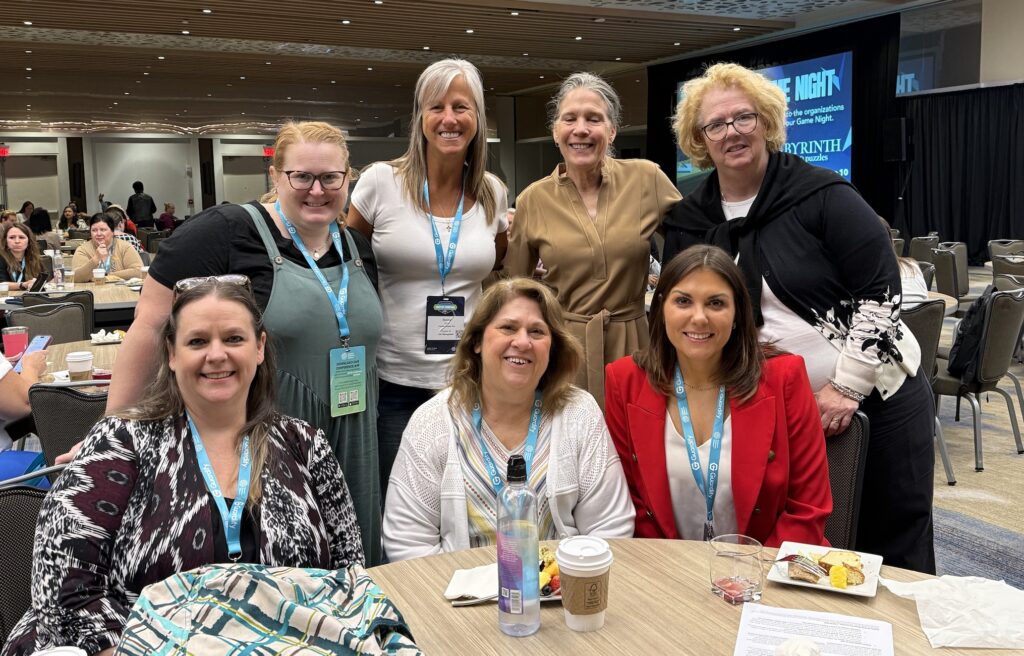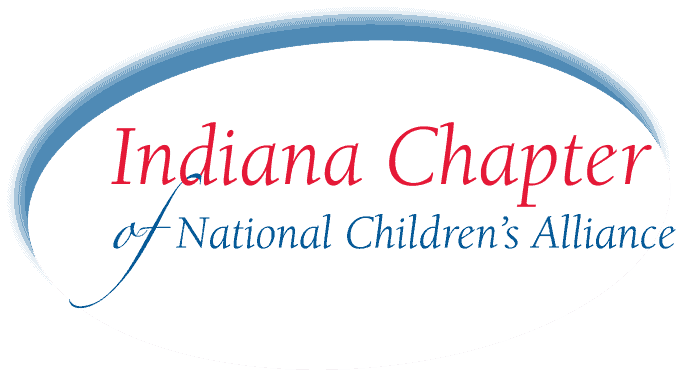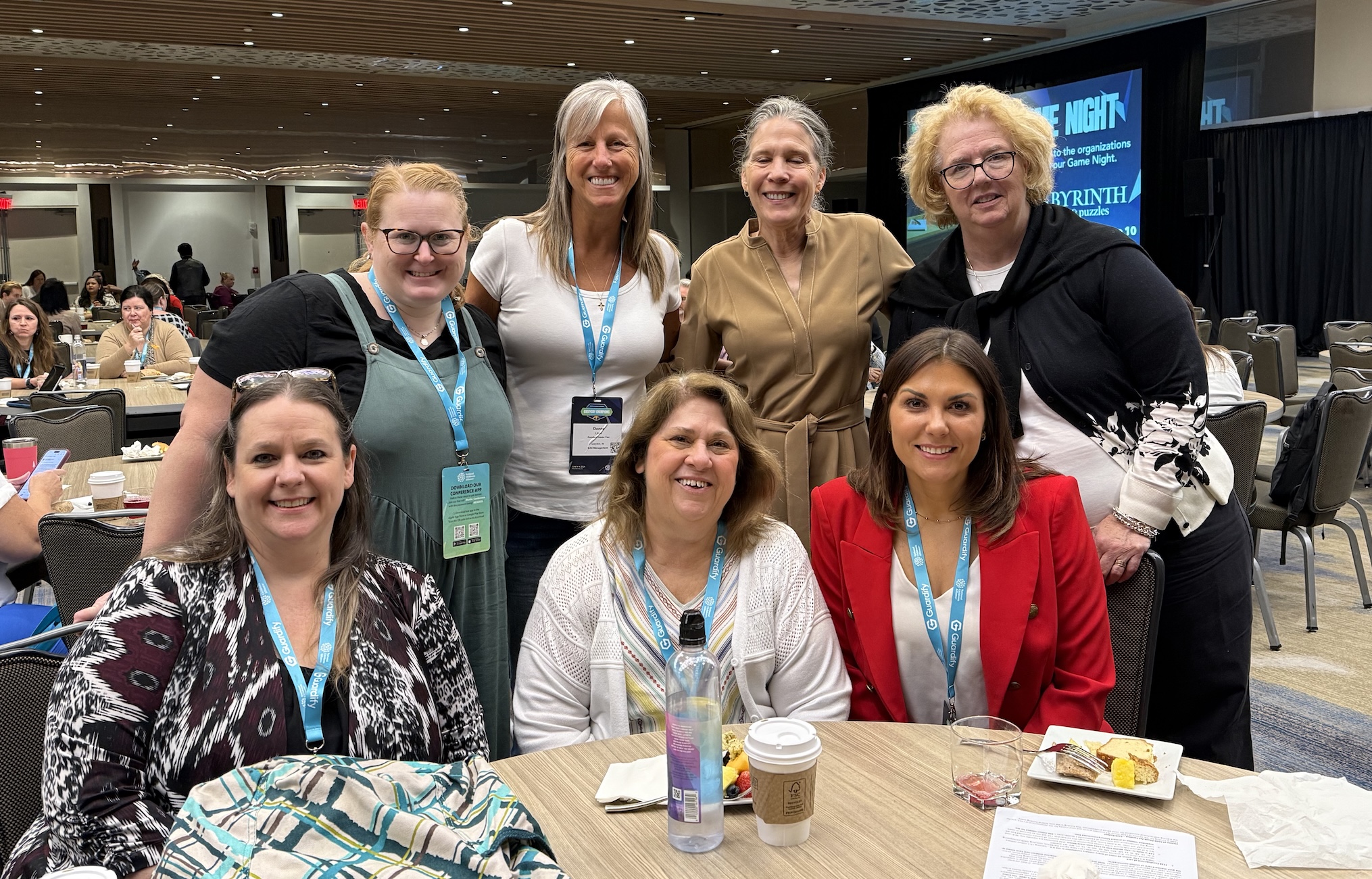
Nearly a dozen CAC Executive Directors from across Indiana attended the 2025 National Children’s Alliance Leadership Conference this June. Held annually in Washington, D.C., the Conference brings together CAC staff from across the country for in-person and online seminars, workshops, and crucially, one-on-one interaction with lawmakers.
Priorities shift each year, and this year was no different as NCA leaders gave insight into several efforts underway. Plus, as Chapter Director Jan Lutz soon realized, “This was fruitful for the Chapter because we paid for registration for eight people to go either in person or virtually, and the networking done among those folks — just from Indiana — in DC is priceless. Dinners, sessions, even watching Pacers basketball in the evening was beneficial. “Networking is shorted when you go to a conference like this. You get contacts within your state and others that have long-lasting impact,” she added.
CAC funding issues at the national level makes small progress
The majority of CACs in Indiana and across the U.S. receive significant funding from the Victims of Crime Act (VOCA). VOCA is funded by fees and fines, not tax revenue. The fund has been largely stable and predictable since its inception in the 90s, but has been drained in the last few years to significantly higher demand. Lawmakers continue to pass “fixes” that shore up the bill, but nothing permanent.
CACs remain focused on this issue as Congress debates legislation. “We learned about pending legislation NCA has been working to include CACs in the Department of Defense budget,” says Sarah Brichto, Executive Director of the CAC of Southeast Indiana and one of the attendees.
DOD funding may seem out of bounds for a CAC’s domestic work, but Indiana and 17 other states have signed agreements to assist the military by providing accredited CAC services for informed reports of abuse and crimes against kids that occur on military bases or installations.
The GRACIE Act
Face time with lawmakers is a key part of the Conference. Often this is a time to share concerns with lawmakers. But it works the other way, too. “Rep. [Erin] Houchin (R-Salem) and her staff introduced us to a new bill that could affect CACs, which we’ll have a closer look at,” says Brichto.
The bill is The Gracie Act, officially Senate Bill 5549, which would establish a grant program within the Office of Juvenile Justice and Delinquency Prevention to award grants to States that require the recording of all child welfare interviews with children and adults, and for other purposes. Indiana is among those states that require the use of forensic interviews at a CAC.
Updates on current trends and outreach
Sessions each year are designed to offer insight and best practices from other CAC leaders in outreach, communication, and what CAC leaders refer to as “buy-in” when establishing or expanding new centers.
Kassie Frazier, Executive Director of Sylvia’s CAC in Lebanon, noted ”The session Beneath the Microscope was very helpful and supportive.” This session focused on ways CACs can speak to the press and public without compromising investigations, child privacy, or overall services.
“It’s hard to work these cases in real time and then have them critiqued later by the public with limited information. Having sessions like this gives us as Executive Directors the opportunity to explore ways to improve those systems and get information out to the public while protecting our clients.”
CACs with namesakes, like Sylvia’s CAC, sometimes struggle with balancing ways to honor their namesake tactfully in a world dominated by profiteering from extreme situations. “I don’t want to be seen as profiting from others’ pain or situation like a Netflix series of a podcast,” says Frazier.
Leaders make local connections away from home
Zoey’s Place CAC Executive Director Katie Molinder made strong connections with leaders from home. “I very much enjoyed the one-on-one time I had with my local Congressman Jefferson Shreve. He took an hour to talk to me about Zoey’s Place and is scheduling an in-person visit. It was wonderful to see his office in DC and be able to inform him of what all we do!”
“As always, time spent with my colleagues was a great time. I was able to hear from other directors who operate multiple centers and use that information to help develop Comfort House procedures for [our] two sites,” says Donna Lloyd of Comfort House CAC in southern Indiana.
Human trafficking remains a top nationwide concern
Despite relatively modest or little attention in most local news outlets, human trafficking remains a top concern among people working in abuse prevention, particularly in Indiana where 80% of the U.S. population lives within a day’s drive. This geographic convenience is good for logistics, but a problem for law enforcement and anti-trafficking efforts.
Kristine Cordts, Executive Director at Evansville’s Holly House CAC participated in one of those session. “I discovered numerous new programs, specializations, and pathways that our center can utilize to support both clients and MDT members. [One includes] a human trafficking case process visual for the MDT.”
“In general, the sessions were much more inspiring this year. Another session on recognizing our medical teams in effective ways, filled me with hope for new practices creating more impact!”

